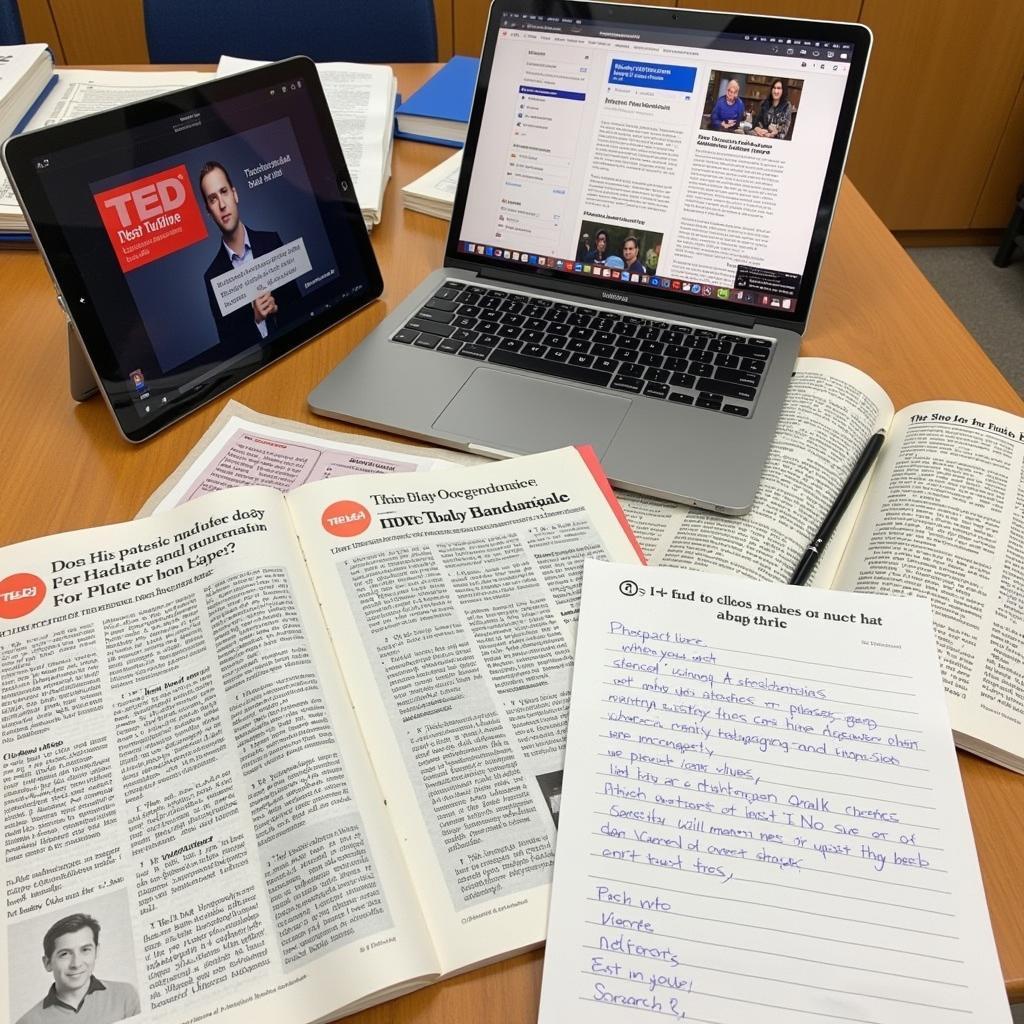Developing ideas on common topics is a crucial skill for IELTS success. Whether you’re tackling the Speaking or Writing sections, the ability to generate and articulate thoughts on familiar subjects can significantly boost your performance. This comprehensive guide will equip you with effective strategies to enhance your idea development skills and excel in your IELTS journey.
Understanding the Importance of Idea Development in IELTS
Before diving into specific techniques, it’s essential to recognize why developing ideas on common topics is so vital for IELTS success. In both the Speaking and Writing modules, examiners are looking for candidates who can:
- Respond to questions with relevant and well-developed answers
- Demonstrate a broad range of vocabulary and grammatical structures
- Organize thoughts coherently and logically
- Provide specific examples to support their ideas
By mastering the art of idea development, you’ll be better prepared to meet these criteria and achieve a higher band score.
 IELTS candidate brainstorming ideas on paper
IELTS candidate brainstorming ideas on paper
Strategies for Generating Ideas Quickly
One of the biggest challenges in IELTS is coming up with ideas under time pressure. Here are some effective techniques to help you generate thoughts rapidly:
- Mind mapping: Start with the main topic in the center and branch out with related ideas.
- The 5W1H method: Ask yourself Who, What, Where, When, Why, and How questions about the topic.
- Personal experiences: Draw from your own life to provide authentic examples and perspectives.
- Current events: Stay informed about global issues to relate topics to recent news and developments.
- Compare and contrast: Look at different aspects or viewpoints of the topic to expand your discussion.
Remember, the key is to practice these techniques regularly so they become second nature during the exam.
Expanding Your Knowledge Base
To develop ideas effectively, you need a solid foundation of knowledge on common IELTS topics. Here’s how to broaden your understanding:
- Read widely: Engage with newspapers, magazines, and online articles on various subjects.
- Watch documentaries and TED talks: These can provide in-depth insights and unique perspectives on diverse topics.
- Engage in discussions: Practice debating topics with friends or join online forums to exchange ideas.
- Keep a journal: Regularly write about different subjects to practice articulating your thoughts.
As Dr. Sarah Thompson, a renowned IELTS instructor, notes, “The more you expose yourself to diverse ideas and perspectives, the easier it becomes to develop your own thoughts on any given topic.”
 IELTS study materials from diverse sources
IELTS study materials from diverse sources
Structuring Your Ideas for Maximum Impact
Once you’ve generated ideas, it’s crucial to present them in a structured manner. Here’s a simple framework to organize your thoughts:
- Introduction: Present your main idea or stance on the topic.
- Main points: Develop 2-3 key arguments or aspects of the topic.
- Examples and elaboration: Support each main point with specific examples or further explanation.
- Conclusion: Summarize your ideas and restate your position.
This structure works well for both Speaking Part 2 and Writing Task 2 responses. Practice applying this framework to various topics to make it a natural part of your response process.
Techniques for Developing Ideas in Speaking
The IELTS Speaking test presents unique challenges for idea development due to its spontaneous nature. Here are some strategies to help you excel:
- Use the PREP technique: Point, Reason, Example, Point (restate)
- Employ signposting language: Use phrases like “Firstly,” “Moreover,” and “In conclusion” to guide your response
- Buy time with filler phrases: Expressions like “That’s an interesting question…” can give you moments to gather your thoughts
- Build on the examiner’s questions: Use the language in the question to kickstart your response
How to handle abstract topics in IELTS speaking can be particularly challenging, but with practice, you can master this skill.
Enhancing Idea Development for Writing Tasks
For IELTS Writing, particularly Task 2, developing ideas thoroughly is crucial. Consider these tips:
- Analyze the question carefully: Identify key words and ensure you understand what’s being asked
- Plan before writing: Spend 5-10 minutes outlining your main points and examples
- Use a variety of sentence structures: Mix simple, compound, and complex sentences for a more sophisticated response
- Incorporate relevant vocabulary: Use topic-specific words and academic language to elevate your writing
Remember, strategies for complex task 2 topics can help you tackle even the most challenging questions with confidence.
Common Pitfalls to Avoid
As you work on developing ideas for common topics, be aware of these common mistakes:
- Going off-topic: Always relate your ideas back to the main question or prompt
- Lack of specificity: Avoid vague statements; always support your points with concrete examples
- Repetition: Ensure each idea adds new information or a different perspective
- Neglecting personal opinion: While facts are important, IELTS also values your unique viewpoint
By staying mindful of these pitfalls, you can ensure your responses are focused, diverse, and engaging.
Practicing Effectively
Consistent practice is key to improving your idea development skills. Here are some effective ways to practice:
- Set a timer and practice speaking or writing on random topics for 2-3 minutes
- Record yourself speaking and analyze your responses for areas of improvement
- Write practice essays and have them reviewed by a teacher or peer
- Engage in developing fluency by practicing debates with others
IELTS expert Dr. Michael Chen advises, “Regular practice not only improves your ability to generate ideas but also boosts your confidence, which is crucial for performing well under exam conditions.”
 IELTS candidate practicing speaking skills
IELTS candidate practicing speaking skills
Conclusion
Developing ideas on common topics is a skill that can significantly enhance your IELTS performance. By implementing the strategies outlined in this guide, you can improve your ability to generate, structure, and articulate your thoughts effectively. Remember, the key to mastery is consistent practice and application of these techniques. As you continue to refine your skills, you’ll find yourself better equipped to handle any topic that comes your way in the IELTS exam.
To further enhance your preparation, consider exploring strategies for developing task 2 ideas and how to develop ideas quickly. With dedication and the right approach, you’ll be well on your way to achieving your desired IELTS score.
FAQ
-
How many ideas should I develop for IELTS Writing Task 2?
It’s generally recommended to develop 2-3 main ideas, each supported by specific examples or explanations. -
What if I can’t think of any ideas during the Speaking test?
If you’re stuck, try relating the topic to your personal experiences or current events. You can also use filler phrases to buy time while you think. -
Is it better to have many simple ideas or a few well-developed ones?
Quality trumps quantity. It’s better to have a few well-developed, relevant ideas with good supporting examples than many superficial points. -
How can I improve my idea generation speed?
Regular practice with timed exercises and expanding your general knowledge through reading and discussions can significantly improve your speed. -
Should I memorize ideas for common topics?
While it’s helpful to be familiar with common topics, avoid memorizing entire answers. Instead, focus on understanding key concepts and practicing how to apply them flexibly. -
How important is using personal examples in developing ideas?
Personal examples can be very effective as they provide authentic content and demonstrate your ability to relate topics to real-life situations. -
Can I use the same idea development techniques for both Speaking and Writing tasks?
While many techniques overlap, Speaking requires quicker idea generation and more spontaneity, whereas Writing allows for more structured planning and development.


